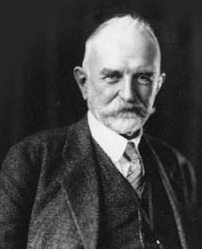|
Norm Entrepreneurs
A norm entrepreneur or moral entrepreneur is an individual, group, or formal organization that seeks to influence a group to adopt or maintain a social norm; altering the boundaries of altruism, deviance, duty, or compassion.Pozen, David E. 2008. �We Are All Entrepreneurs Now” ''Wake Forest Law Review'' 43:283–340. Moral entrepreneurs take the lead in labeling a particular behaviour and spreading or popularizing this label throughout society. This can include attributing negative labels to behaviour, the removal of negative labels, positive labeling, and the removal of positive labels. The moral entrepreneur may press for the creation or enforcement of a norm for any number of reasons, altruistic or selfish. Such individuals or groups also hold the power to generate moral panic; similarly, multiple moral entrepreneurs may have conflicting goals and work to counteract each other. Some examples of moral entrepreneurs include: Mothers Against Drunk Driving (MADD), the anti-tobacc ... [...More Info...] [...Related Items...] OR: [Wikipedia] [Google] [Baidu] |
Social Norm
A social norm is a shared standard of acceptance, acceptable behavior by a group. Social norms can both be informal understandings that govern the behavior of members of a society, as well as be codified into wikt:rule, rules and laws. Social normative influences or social norms, are deemed to be powerful drivers of human behavioural changes and well organized and incorporated by major theories which explain human behaviour. Institutions are composed of multiple norms. Norms are shared social beliefs about behavior; thus, they are distinct from "ideas", "attitudes", and "values", which can be held privately, and which do not necessarily concern behavior. Norms are contingent on context, social group, and historical circumstances. Scholars distinguish between regulative norms (which constrain behavior), constitutive norms (which shape interests), and prescriptive norms (which prescribe what actors ''ought'' to do). The effects of norms can be determined by a logic of appropriateness ... [...More Info...] [...Related Items...] OR: [Wikipedia] [Google] [Baidu] |
Human Nature
Human nature comprises the fundamental dispositions and characteristics—including ways of Thought, thinking, feeling, and agency (philosophy), acting—that humans are said to have nature (philosophy), naturally. The term is often used to denote the essence of humankind, or what it 'Meaning (psychology), means' to be human. This usage has proven to be controversial in that there is dispute as to whether or not such an essence actually exists. Arguments about human nature have been a central focus of philosophy for centuries and the concept continues to provoke lively philosophical debate. While both concepts are distinct from one another, discussions regarding human nature are typically related to those regarding the comparative importance of genes and Social environment, environment in Developmental psychology, human development (i.e., 'nature versus nurture'). Accordingly, the concept also continues to play a role in academic fields, such as both the natural science, natural an ... [...More Info...] [...Related Items...] OR: [Wikipedia] [Google] [Baidu] |
Harrison Narcotics Tax Act
The Harrison Narcotics Tax Act (Ch. 1, ) was a United States federal law that regulated and taxed the production, importation, and distribution of opiates and coca products. The act was proposed by Representative Francis Burton Harrison of New York and was signed into law by President Woodrow Wilson on December 17, 1914. "An Act To provide for the registration of, with collectors of internal revenue, and to impose a special tax on all persons who produce, import, manufacture, compound, deal in, dispense, sell, distribute, or give away opium or coca leaves, their salts, derivatives, or preparations, and for other purposes." In '' Webb v. United States'', the act was interpreted to prohibit prescribing maintenance doses for narcotics unless it was intended to cure the patient's addiction. The Harrison anti-narcotic legislation consisted of three U.S. House bills imposing restrictions on the availability and consumption of the psychoactive drug opium. House Resolution (H.R.) 19 ... [...More Info...] [...Related Items...] OR: [Wikipedia] [Google] [Baidu] |
Opium Den
An opium den was an establishment in which opium was sold and smoked. Opium dens were prevalent in many parts of the world in the 19th century, most notably China, Southeast Asia, North America, and France. Throughout the West, opium dens were frequented by and associated with the Chinese because the establishments were usually run by Chinese mobsters, who supplied the opium and prepared it for visiting non-Chinese smokers. Most opium dens kept a supply of opium paraphernalia such as the pipes and lamps that were necessary to smoke the drug. Patrons would recline to hold the long opium pipes over oil lamps that would heat the drug until it vaporized, allowing the smoker to inhale the vapors. Opium dens in China were frequented by all levels of society, and their opulence or simplicity reflected the financial means of the patrons. In urban areas of the United States, particularly on the West Coast, there were opium dens that mirrored the best to be found in China, with luxurious ... [...More Info...] [...Related Items...] OR: [Wikipedia] [Google] [Baidu] |
Prohibition In The United States
The Prohibition era was the period from 1920 to 1933 when the United States prohibited the production, importation, transportation, and sale of alcoholic beverages. The alcohol industry was curtailed by a succession of state legislatures, and Prohibition was formally introduced nationwide under the Eighteenth Amendment to the United States Constitution, ratified on January 16, 1919. Prohibition ended with the ratification of the Twenty-first Amendment to the United States Constitution, Twenty-first Amendment, which repealed the Eighteenth Amendment on December 5, 1933. Led by Pietism, Pietistic Protestantism in the United States, Protestants, prohibitionists first attempted to end the trade in alcoholic drinks during the 19th century. They aimed to heal what they saw as an ill society beset by alcohol-related problems such as alcoholism, domestic violence, and Saloon bar, saloon-based political corruption. Many communities introduced alcohol bans in the late 19th and early 20 ... [...More Info...] [...Related Items...] OR: [Wikipedia] [Google] [Baidu] |
Typifying
Typification is a process of creating standard (''typical'') social construction based on standard assumptions. Discrimination based on typification is called typism. See also *Ideal type Ideal type (), also known as pure type, is a typological term most closely associated with the sociologist Max Weber (1864–1920). For Weber, the conduct of social science depends upon the construction of abstract, hypothetical concepts. The "id ... *Normal type *Typology (other), Typology References External linksTypification at Sociology Index Sociological terminology {{socio-stub ... [...More Info...] [...Related Items...] OR: [Wikipedia] [Google] [Baidu] |
Emotional Appeal
Appeal to emotion or ''argumentum ad passiones'' (meaning the same in Latin) is an informal fallacy characterized by the manipulation of the recipient's emotions in order to win an argument, especially in the absence of factual evidence. This kind of appeal to emotion is irrelevant to or distracting from the facts of the argument (a so-called "red herring") and encompasses several logical fallacies, including appeal to consequences, appeal to fear, appeal to flattery, appeal to pity, appeal to ridicule, appeal to spite, and wishful thinking. Appeal to emotion is an application of social psychology. It is only fallacious when the emotions that are elicited are irrelevant to evaluating the truth of the conclusion and serve to distract from rational consideration of relevant premises or information. For instance, if a student says "If I get a failing grade for this paper I will lose my scholarship. It's not plagiarized." the emotions elicited by the first statement are not relevant ... [...More Info...] [...Related Items...] OR: [Wikipedia] [Google] [Baidu] |
Self-interest
Self-interest generally refers to a focus on the needs or desires (''interests'') of one's self. Most times, actions that display self-interest are often performed without conscious knowing. A number of philosophical, psychological, and economic theories examine the role of self-interest in motivating human action. Individuals may have a self-serving bias towards their self-interest. In philosophy Philosophical concepts concerned with self-interest include: * Enlightened self-interest, a philosophy which states that acting to further the interests of others also serves one's own self-interest. * Ethical egoism, the ethical position that moral agents ''ought'' to do what is in their own self-interest. * Hedonism, the school of ethics which argues that pleasure is the only intrinsic good. ** Cyrenaics, the Aristippean pre-Socratic original. ** Epicureanism, a philosophical system related to hedonism. * Individualism, a philosophy stressing the worth of individual selves. * Ratio ... [...More Info...] [...Related Items...] OR: [Wikipedia] [Google] [Baidu] |
Richard Posner
Richard Allen Posner (; born January 11, 1939) is an American legal scholar and retired United States circuit judge who served on the U.S. Court of Appeals for the Seventh Circuit from 1981 to 2017. A senior lecturer at the University of Chicago Law School, Posner was identified in '' The Journal of Legal Studies'' as the most-cited legal scholar of the 20th century. As of 2021, he is also the most-cited United States legal scholar of all time. He is widely considered to be one of the most influential legal scholars in the United States. Posner is known for his scholarly range and for writing on topics outside of law. In his various writings and books, he has addressed animal rights, feminism, drug prohibition, same-sex marriage, Keynesian economics, law and literature, and academic moral philosophy, among other subjects. Posner is the author of nearly 40 books on jurisprudence, economics, and several other topics, including ''Economic Analysis of Law'', ''The Economics of J ... [...More Info...] [...Related Items...] OR: [Wikipedia] [Google] [Baidu] |
Labeling Theory
Labeling theory posits that self-identity and the behavior of individuals may be determined or influenced by the terms used to describe or classify them. It is associated with the concepts of self-fulfilling prophecy and stereotype, stereotyping. Labeling theory holds that Deviance (sociology), deviance is not inherent in an act, but instead focuses on the tendency of majorities to negatively label minorities or those seen as deviant from standard cultural norms. The theory was prominent during the 1960s and 1970s, and some modified versions of the theory have developed and are still currently popular. Stigma is defined as a powerfully negative label that changes a person's self-concept and social identity.Macionis, John, and Linda Gerber. 2010. ''Sociology'' (7th ed.). London: Pearson Education Canada, Ltd., Pearson Education Canada. Labeling theory is closely related to social constructionism, social-construction and symbolic interactionism, symbolic-interaction analysis. Labe ... [...More Info...] [...Related Items...] OR: [Wikipedia] [Google] [Baidu] |
Symbolic Interactionism
Symbolic interactionism is a sociological theory that develops from practical considerations and alludes to humans' particular use of shared language to create common symbols and meanings, for use in both intra- and interpersonal communication. It is particularly important in microsociology and social psychology. It is derived from the American philosophy of pragmatism and particularly from the work of George Herbert Mead, as a pragmatic method to interpret social interactions. According to Mead, symbolic interactionism is "The ongoing use of language and gestures in anticipation of how the other will react; a conversation". Symbolic interactionism is "a framework for building theory that sees society as the product of everyday interactions of individuals". In other words, it is a frame of reference to better understand how individuals interact with one another to create symbolic worlds, and in return, how these worlds shape individual behaviors. It is a framework that helps ... [...More Info...] [...Related Items...] OR: [Wikipedia] [Google] [Baidu] |
Social Issue
A social issue is a problem that affects many people within a society. It is a group of common problems in present-day society that many people strive to solve. It is often the consequence of factors extending beyond an individual's control. Social issues are the source of conflicting opinions on the grounds of what is perceived as morally correct or incorrect personal life or interpersonal social life decisions. Social issues are distinguished from Economic policy, economic issues; however, some issues (such as immigration) have both social and economic aspects. Some issues do not fall into either category, such as warfare. Exemplary for social issues was the so-called social question in the beginning of the Industrial Revolution, industrial revolution. Growing poverty on one and growing population and Materialism, materialistic wealth on the other hand caused tension between very rich and poorest people inside society. There can be disagreements about what social issues are wo ... [...More Info...] [...Related Items...] OR: [Wikipedia] [Google] [Baidu] |






